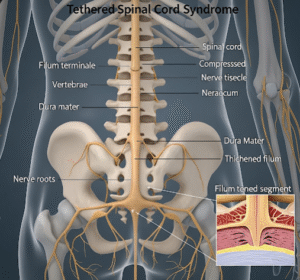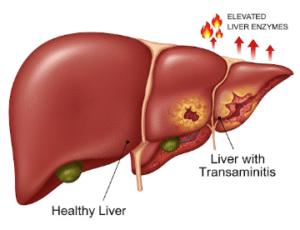Overview
Excessive worry, also known as chronic anxiety or generalized anxiety, is a condition characterized by persistent, uncontrollable, and often irrational concern about everyday events or situations. It can interfere with daily life, work, and relationships, and may manifest as both emotional and physical symptoms. In Korea, mental health clinics and hospitals provide comprehensive evaluation, therapy, and advanced treatment options for individuals experiencing excessive worry.
Key Facts
▶ Prevalence: Affects millions worldwide; often begins in childhood, adolescence, or early adulthood.
▶ Causes: Combination of genetic predisposition, brain chemistry, personality traits, and environmental stressors.
▶ Associated Symptoms: Restlessness, fatigue, irritability, difficulty concentrating, sleep disturbances, and physical symptoms like muscle tension.
▶ Treatment Options in Korea: Cognitive-behavioral therapy (CBT), medications (anxiolytics, SSRIs), relaxation techniques, and lifestyle modifications.
▶ Urgency: Severe anxiety causing functional impairment, panic attacks, or depression requires prompt professional attention.
What is Excessive Worry?
Excessive worry involves overthinking, persistent concern, and anticipation of negative outcomes, often out of proportion to the actual situation. It is a hallmark of generalized anxiety disorder (GAD) but can also occur in other mental health conditions.
▶ Generalized Anxiety Disorder (GAD): Chronic, pervasive worry lasting six months or longer.
▶ Situational Anxiety: Worry triggered by specific events, such as exams, health, or work-related stress.
▶ Health Anxiety (Hypochondria): Excessive concern about illness or physical symptoms.
▶ Social Anxiety: Intense worry about social situations or fear of judgment.
▶ Panic-Related Worry: Fear of future panic attacks or physical symptoms.
Note: Excessive worry is more than normal stress or concern; it is persistent, difficult to control, and negatively affects daily functioning.
What Symptoms Are Related to Excessive Worry?
▶ Persistent Nervousness: Feeling “on edge” most of the time.
▶ Restlessness or Agitation: Difficulty sitting still or relaxing.
▶ Fatigue: Physical and mental exhaustion from constant tension.
▶ Difficulty Concentrating: Mind may go blank or fixate on worries.
▶ Irritability: Heightened emotional sensitivity or frustration.
▶ Muscle Tension: Neck, shoulders, or back tightness.
▶ Sleep Disturbances: Trouble falling or staying asleep, or restless sleep.
▶ Physical Symptoms: Headaches, gastrointestinal discomfort, sweating, or rapid heartbeat.
▶ Avoidance Behavior: Avoiding situations that trigger worry.
What Causes / Possible Causes
Excessive worry arises from a combination of biological, psychological, and environmental factors:
▶ Genetic Predisposition: Family history of anxiety or mood disorders increases risk.
▶ Neurochemical Imbalances: Dysregulation of neurotransmitters like serotonin, norepinephrine, and GABA.
▶ Personality Traits: Perfectionism, high sensitivity, or tendency to overthink.
▶ Chronic Stress: Work pressure, financial problems, relationship difficulties, or trauma.
▶ Childhood Experiences: Early life adversity, neglect, or exposure to anxiety in caregivers.
▶ Medical Conditions: Thyroid disorders, heart disease, or chronic pain can exacerbate worry.
▶ Substance Use: Stimulants, caffeine, or withdrawal from medications can trigger anxiety.
▶ Lifestyle Factors: Poor sleep, sedentary habits, and inadequate stress management.
Note: Identifying underlying causes is essential for targeted treatment and long-term symptom relief.
When Should I See a Doctor?
▶ Persistent Worry: Lasting six months or longer and affecting daily life.
▶ Functional Impairment: Difficulty working, studying, or maintaining relationships.
▶ Severe Physical Symptoms: Heart palpitations, dizziness, or gastrointestinal issues.
▶ Sleep Disruption: Chronic insomnia or restless sleep due to anxiety.
▶ Panic or Fear Episodes: Sudden spikes of anxiety with physical symptoms.
▶ Depressive Symptoms: Feelings of hopelessness or persistent low mood.
▶ Children or Adolescents: Academic difficulties, irritability, or social withdrawal.
▶ Failure of Self-Care: Worries cannot be managed with relaxation or lifestyle strategies.
Tip: Korean mental health specialists provide confidential evaluation, therapy, and individualized treatment plans to manage excessive worry effectively.
Care and Treatment
Management of excessive worry focuses on psychotherapy, medications, and lifestyle modifications:
▶ Cognitive-Behavioral Therapy (CBT): Identifies negative thought patterns and develops coping strategies.
▶ Medications: SSRIs, SNRIs, or anxiolytics prescribed under supervision.
▶ Relaxation Techniques: Deep breathing, progressive muscle relaxation, mindfulness, and meditation.
▶ Lifestyle Modifications: Regular exercise, balanced nutrition, and good sleep hygiene.
▶ Stress Management: Time management, social support, and problem-solving strategies.
▶ Monitoring: Track symptoms, triggers, and response to therapy.
▶ Complementary Therapies: Yoga, tai chi, and guided imagery for relaxation.
Treatment Options in Korea
Medical Evaluation:
▶ Psychiatric Assessment: Comprehensive history, mental status examination, and risk assessment.
▶ Screening Tools: GAD-7, Hamilton Anxiety Rating Scale, or other validated questionnaires.
▶ Laboratory Tests: Rule out medical conditions contributing to anxiety.
▶ Specialist Consultation: Psychiatrists, psychologists, or counselors for tailored care.
Advanced Therapies:
▶ Cognitive Behavioral Therapy (CBT) Programs: Structured therapy for chronic anxiety.
▶ Medication Management: Optimized pharmacotherapy for resistant or severe cases.
▶ Mindfulness-Based Stress Reduction (MBSR): Programs available in Korean hospitals and clinics.
▶ Multidisciplinary Care: Coordination among mental health professionals, nutritionists, and social workers.
Rehabilitation & Support:
▶ Patient Education: Recognize triggers, manage symptoms, and implement coping strategies.
▶ Follow-Up Care: Regular monitoring to prevent relapse and maintain mental health.
▶ Specialist Clinics: Korean mental health hospitals offer integrated care combining therapy, medication, and lifestyle interventions.
Outcome: With early intervention and comprehensive treatment in Korea, excessive worry can be managed effectively, reducing anxiety, improving coping skills, and enhancing overall quality of life.













